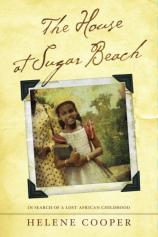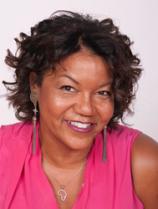Reading Group Guide
Discussion Questions
The House at Sugar Beach: In Search of a Lost African Childhood

1. The first sentence of Helene Cooper's memoir is, "This is a story about rogues.” Did you find this statement to be true? What sort of rogues did Helene fear she would encounter in Liberia?
2. Why do you think Helene chose to title her memoir The House at Sugar Beach even though she spent only seven years of her life there? What about the house is metaphorical for her entire childhood? Her entire life?
3. Discuss the role of religion in Helene’s childhood. When did she pray? For what did she pray?
4. Throughout her childhood in Liberia Helene wishes to become a "been-to." When she moved to Knoxville in 1980 it "seemed like a place where [she] was trapped, prison far from home.” How does she eventually make the States seem more like home?
5. Discuss Helene's relationship with Eunice in the house at Sugar Beach. What were some of the experiences they shared that made it clear that Eunice was more than a "live-in playmate”? How does the relationship evolve over the course of their lives?
6. Why do you think Helene and her sisters played, "when war time come”? Did Helene paint anything about the national unrest going on in Liberia? Did circumstances or events she experienced in her early life portend war?
7. Helene spends her childhood fearing seemingly harmless entities like negee and heartmen. Then we learn that her classmate Richard was indeed chased by a heartman, and only narrowly escaped. How did it change your understanding of the young Helene to learn that her fears were not unfounded? What forms have the imaginary boogiemen of your youth taken in adulthood?
8. Discuss the distinction between the native Liberians and the "Congo people.” How did you react to Helene's cousin CeRue saying, "don't call me Congo, my grandma da Vai woman"? What does the national observance of Matilda Newport Day say about the relationship between native Liberians and Congo people? When war hit Liberia how did the distinctions become even more evident? Contrarily, how were the lines further blurred?
9. How did the mixing in of Liberian history help you to contextualize Helene's story? What about her story and the way she told it was universal?
10. Discuss Lah’s rape. Do you admire her for what she did to protect the girls? She reports that the last thing the soldiers said to her before they raped her was, "You think the Americans are going to come and help you? Well, they back us.” As an American, how did you react to this accusation?
11. Why do you think Helene decided to intersperse her articles with those being written about Liberia in Chapter 23? What effect did this have? Do you think she felt burdened by her homeland? Or guilty about her life as a journalist in the States?
12. Discuss the role of men in Helene's life. How did the Liberian cultural view of marriage affect the Cooper family? In what ways was Helene’s father an ideal father figure? How did he let her down?
13. How does Helene's reunion with Eunice in the final chapter put her life in the States into perspective? How do you think Helene might have fared had she not left Liberia when the war began?
14. How does Helene’s memoir differ from others you have read? Which stories will stay with you? What do you wish she had expanded on?
Enhancing your Book Club:
1- Prepare peanut soup, a traditional Liberian dish, and serve it for your book club:
Peanut soup (ground pea soup)
1 ham hock
1 pound stew beef
1 pound chicken pieces (thighs, wings, drumsticks)
4 chicken boullion cubes
1 onion, diced
1 bell pepper, diced
1 celery stalk, diced
1 habanero pepper, minced
1 piece dried fish (optional)
Salt and pepper to taste
2 large potatoes, cut into 1-inch pieces
½ pound okra
½ jar peanut butter
Fill a soup pot halfway with water and add ham hock. Bring to a boil for 15 minutes. Discard the water, put the ham hock back in the pot, and refill with water, again halfway up. (This gets some of the oil out of the ham hock). Bring to a boil, and add beef, chicken, boullion cubes, onion, pepper, celery, habañero pepper, dried fish (if using), and salt and pepper. Cover and cook for about 30 minutes. Add potatoes, cook another 15 minutes. Add okra, cook 5 minutes, add peanut butter, cook 5 minutes more until peanut butter is melted into the soup. Taste and adjust seasonings. If soup is watery, add more peanut butter. If it's too thick, add water.
Note: Liberians eat meat on the bone, so don’t go putting no boneless chicken breasts in there.
2- Read some of Helene Cooper's articles in the New York Times. Look out for foreign datelines!
3- Read more about the Liberian Civil War on Wikipedia.
4- Helene writes that when she was a student at UNC there was outrage that the university still invested in companies that did business with apartheid South Africa. Have you been involved in any divestiture campaigns? Have you ever felt that boycotting certain products or companies could help right some wrongs?
5 - Helene speaks Liberian English with her family and "cullored" once she moves to the States. Do you communicate differently with your family than you do with friends or coworkers? What are some phrases you use among your family that outsiders may not understand?
The House at Sugar Beach: In Search of a Lost African Childhood
- Publication Date: September 2, 2008
- Genres: Nonfiction
- Hardcover: 368 pages
- Publisher: Simon & Schuster
- ISBN-10: 0743266242
- ISBN-13: 9780743266246








